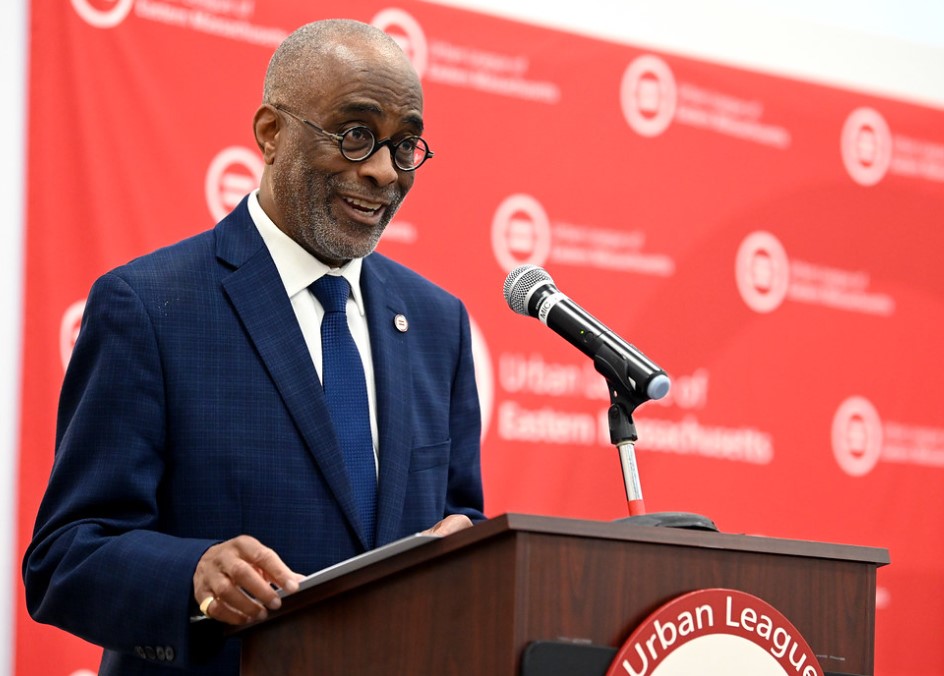A BOSTON NURSING HOME established in 1927 is again in danger of shutting its doors, one year after a Superior Court judge placed the nonprofit into receivership to avoid closure.
The court-appointed receiver, Joseph Feaster, who was tasked with finding a financial path forward for the Benjamin Healthcare Center in Boston’s Mission Hill neighborhood, wrote in a court filing this week that the options include finding a buyer for the facility, or closing up the nursing home and selling off the building and the land it sits on.
More than $3 million in funds was allegedly “siphoned” from the facility by its prior administrator, Feaster said in the filing. He pointed to a civil lawsuit filed earlier this month by attorneys for the nursing home, alleging a “pattern of theft and embezzlement” against Tony Francis, the former administrator, and other former employees. Attempts to directly reach Francis were unsuccessful.
Feaster wrote in the March 24 filing that due the Benjamin’s current debt load and state-imposed limits on the number of beds it can have, it’s “impossible for me to present to the Court that The Benjamin can continue without a significant infusion of funds,” possibly from state health officials, or more money from the state’s Medicaid program. He also suggested the possibility of an “angel donor” stepping in to save the facility, or the Benjamin mortgaging its real estate.
In an effort to keep the Benjamin open as a long-term care facility, Feaster has started discussions with Evans Senior Investments, a Chicago-based brokerage firm that is helping sell 22 Massachusetts nursing homes to five different buyers. “My discussions with them have been stalled because I am waiting to receive reliable financial reports for 2024 to the present,” Feaster wrote in his court filing.
The other option is to close the Benjamin and sell its real estate, he continued. Feaster, who called the facility “iconic” due to its history of serving Black residents, said he has reason to believe the Benjamin does not have a mortgage, but added “I hesitate to confirm such absolutely because there is some discrepancy regarding the previous ownership.” The facility would be shut down – which the receivership was meant to avoid – and the residents would be transferred to other facilities.
Feaster noted that the Benjamin, which opened 98 years ago, is the only nursing home in the northeast US serving predominantly Black residents. There are about 80 residents in the nursing home. “The closure of this facility, and the relocation of its elderly residents, would displace them from the neighborhoods where the majority have lived their entire lives,” Feaster wrote. “Equally as important, it would impose travel/commuting challenges for their family and loved ones, who now have a local nursing home where they can visit their loved ones. All of these factors affect the quality of life of nursing home residents.”
The Benjamin has been in receivership since April 2024. State health officials have allocated hundreds of thousands of dollars, to the Benjamin as part of an effort to stabilize the facility, but they have balked at helping to pay for forensic accounting, legal expenses in the civil lawsuit against Francis, and Feaster’s receivership fees. Attorney General Andrea Campbell’s office is representing state officials in court, and has asked Feaster for more detailed financial records.
At a March 19 hearing, attorneys from Campbell’s office and Feaster appeared before Judge Christopher Belezos, who said he received two letters that made new mismanagement claims even as the facility tried to climb out of receivership. He said both raised concerns that he wants addressed at the next hearing on April 2.
One letter came from Delicia Mark, who was hired as an administrator by Feaster, and the second from people claiming to be anonymous staffers. Rather than providing any names, the letter’s last page said, “Please HELP!” CommonWealth Beacon obtained and reviewed both letters. Mark alleged a hostile work environment created by Feaster and his assistant, former state senator Dianne Wilkerson, while the second letter alleged that Wilkerson’s relatives received jobs and money for work at the facility.
Feaster said in an email to CommonWealth Beacon on Wednesday that he would reply to the allegations in court via an affidavit. Wilkerson has previously declined comment and referred questions to Feaster. Mark did not respond to a request for comment on Wednesday.
While speaking with reporters outside the courtroom after the March 19 hearing, Feaster blamed Mark for the Benjamin nearly missing payroll and said he had to dip into his own pocket to help bridge a potential $50,000 gap. Mark, in an earlier interview with CommonWealth Beacon, said Feaster’s move was unnecessary and the facility would make payroll without it.
Campbell’s office declined to comment on the latest mismanagement allegations, and said it could not confirm or deny the existence of any investigation into the Benjamin.
“Ensuring that residents have continued access to high-quality care remains a top priority for the AG’s office,” a Campbell spokesperson said Wednesday. “To that end, we continue to monitor the ongoing receivership of the facility while also seeking information from the receiver about progress toward a plan for emergence from temporary receivership.”

